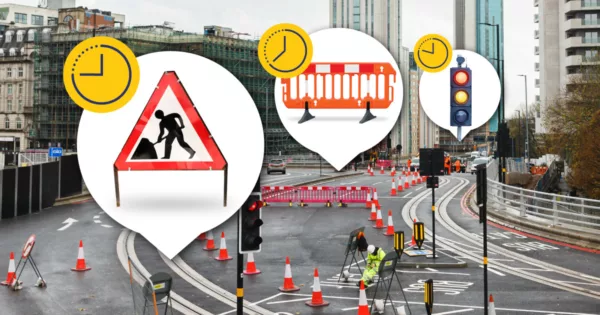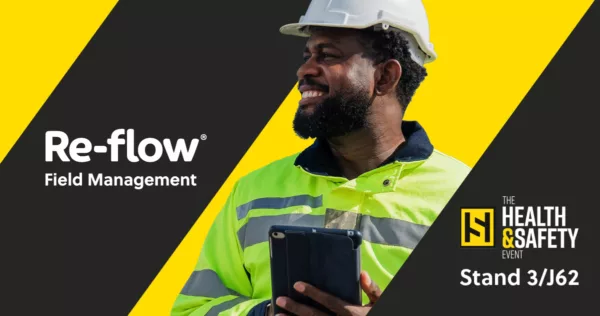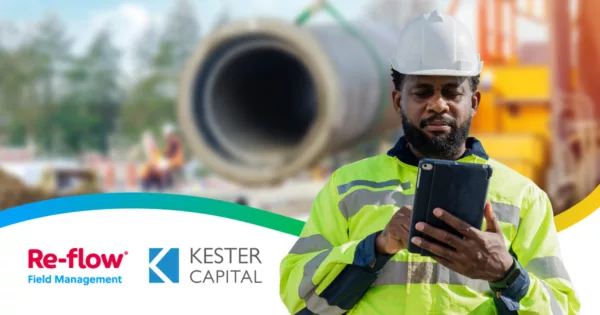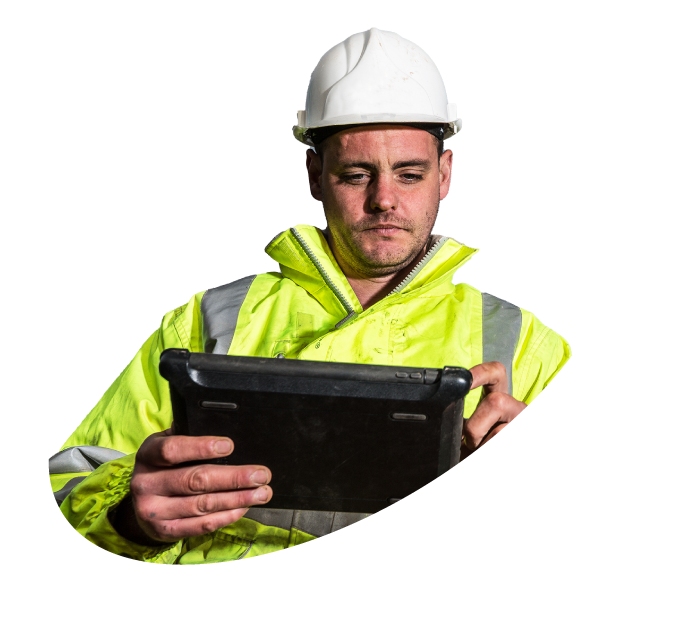
News
Enhancing landscape management with technology
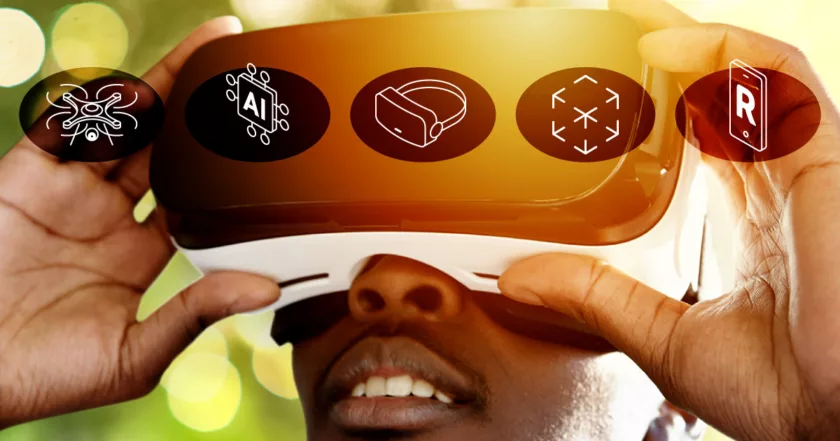
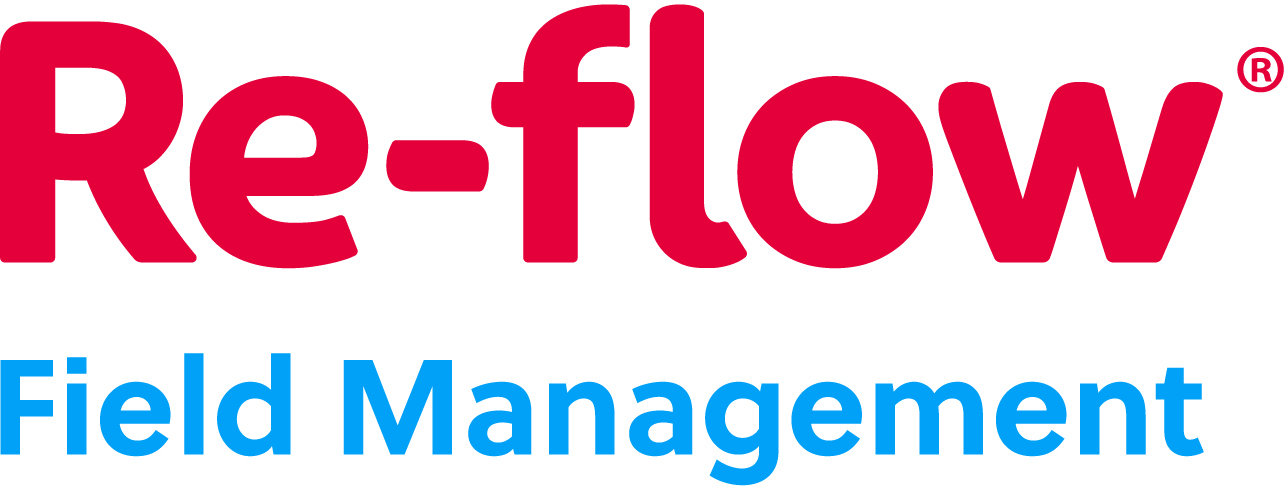
In relation to new technology, landscaping managers are expressing interest in software and kit that makes a truly actionable difference to their processes – whether that’s by speeding up project completion time, reducing downtime, eliminating incidents, or improving their relationships with clients.
Let’s take a quick look at the top 5 pieces of tech enhancing landscaping companies.
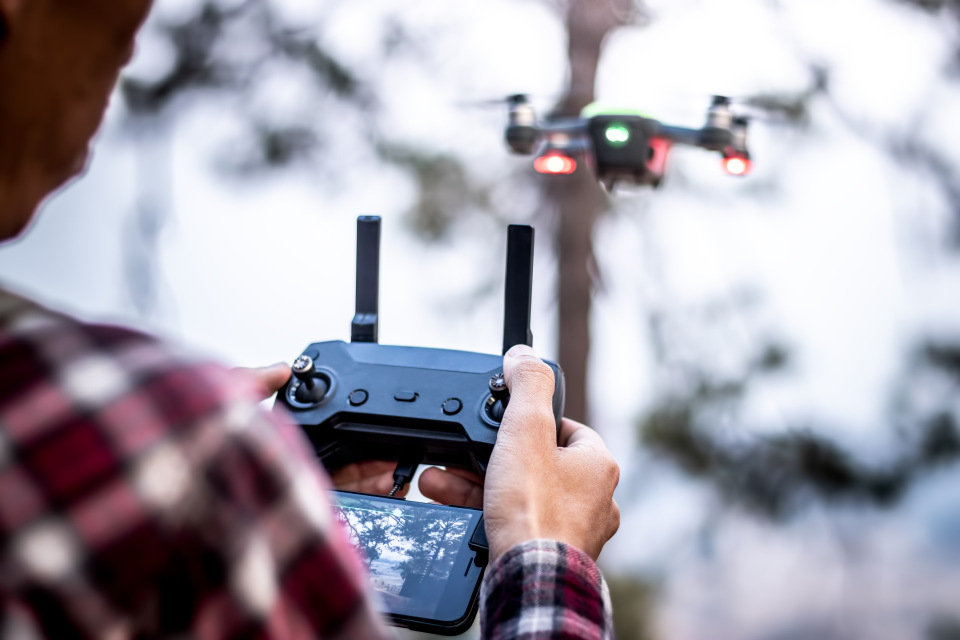
Drones
Drones represent the quickest and most accurate way of measuring sites. There’s no need to manually fly them either. Drone pilots are able to set up their automations and predetermined route maps from the comfort of their offices. All they have to do is turn up on site and let the drone go to work. Surveying jobs that once required whole teams can now be done by one person, and in much less time:
- Boundary and topographic surveys: Laser scanners on the drones collect measurements, which can be interpreted by mapping software to build high-quality 3D maps. These models are used to measure elevation and distances of sites.
- Progress reports: companies build trust and develop the quality of their professional relationships with clients by showing them high-angle photographs of completed works. This is useful for all stakeholders, and great for compiling a record of jobs.
- Stockpile measurements: with photogrammetry and LiDAR data, the drones are able to create precise volume calculations of materials, anything from shingle to gravel.
Note: In the UK, anyone flying drones with cameras attached or drones heavier than 250g need to be registered with the Civil Aviation Authority. They need to pass a test, and get a flyer ID.
Virtual design tools powered by AI
From incredibly powerful options like AutoCAD and PRO Landscape to more budget-friendly choices like SketchUp and iScape , landscapers have been using software to create designs.
Landscapers either digitally overlay designs onto photos or build 2D and 3D landscaping layouts from scratch to show their clients. The results can often be anything from photorealistic to ‘functional’, but they add an extra layer of professionalism to the work.
As is happening elsewhere, AI is making this powerful software even more effective and easy to use. Examples include SketchUp’s rapid-speed AI rendering saving hours of labour to AutoCAD’s many AI automations and speed boosts.
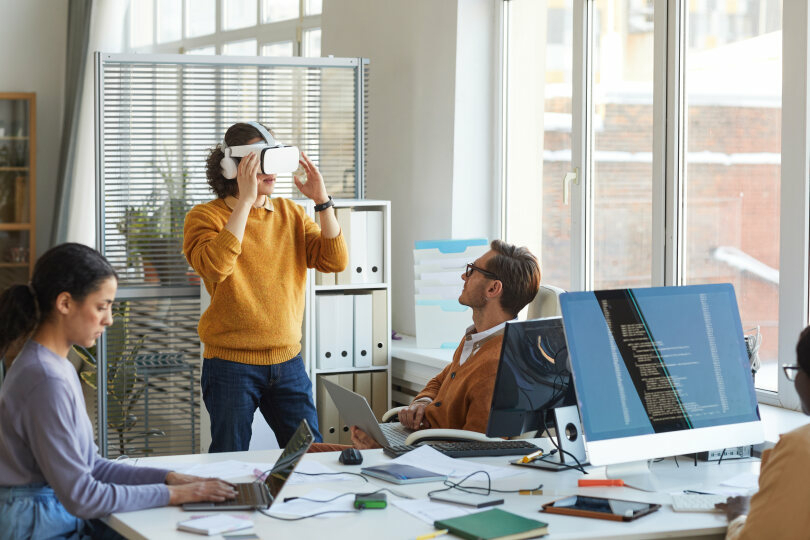
Virtual reality
Taking virtual designs a step further, virtual reality creates a fully immersive, computer-generated environment that clients can explore using a VR headset. This technology allows clients to virtually walk through their environment, experiencing the design as if they were physically there. VR can help clients visualise different textures, materials, and even the effects of sunlight at various times of the day. This interactive approach can significantly enhance client understanding and satisfaction, making it easier for them to make informed decisions.
Augmented reality
On the other hand, AR can overlay digital information onto the real world through devices like smartphones or tablets. Clients can see a 3D model of their proposed landscape superimposed onto the site. AR is particularly useful for showing how new elements will fit into existing spaces, helping clients to better understand the scale and impact of the design. It’s an accessible technology that requires no specialised equipment, making it a practical choice for many landscaping projects.
Both VR and AR are powerful tools that can transform the client consultation process, making it more engaging and effective. By providing a realistic preview of the final outcome, these technologies can help to build trust and ensure that clients are fully satisfied with the proposed designs.
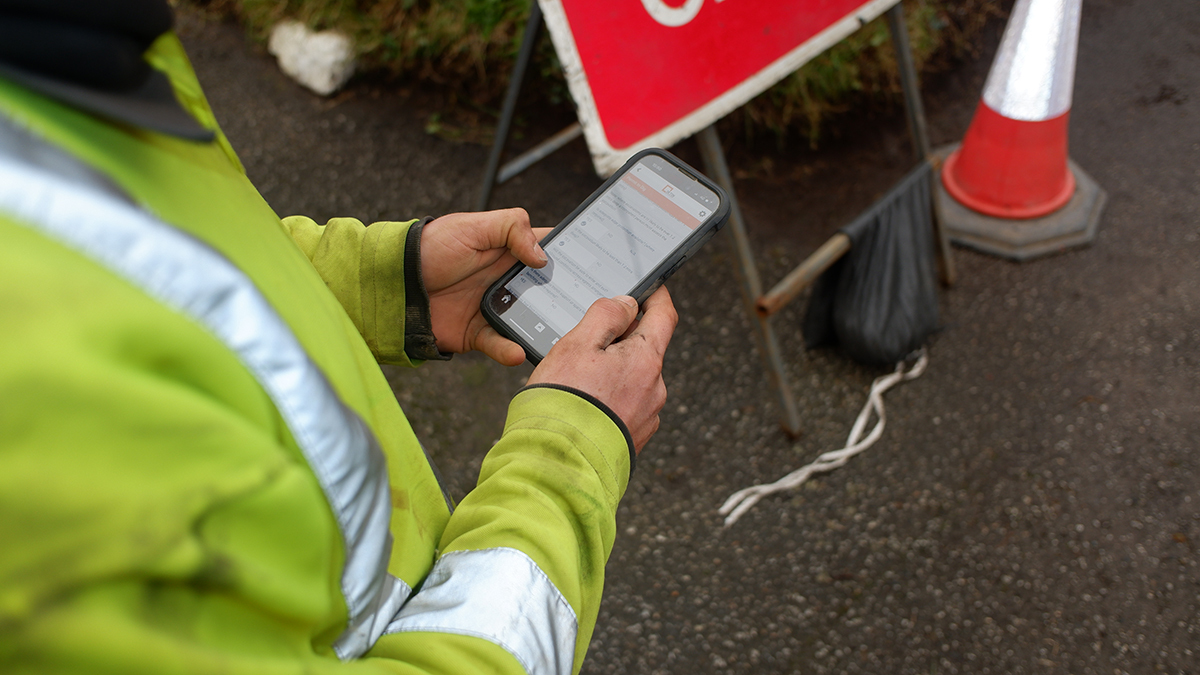
Re-flow field management software
Field management software, like Re-flow, was designed as a comprehensive solution for landscaping professionals struggling with job oversight, compliance, and efficient workflow management.
Flexible scheduling: The nature of landscaping means jobs often need to be moved and changed. With Re-flow, updates can be made instantly through the dashboard or by submitting a form in the app. When these updates are made, the software then notifies the relevant managers and operatives.
Real-time data: With everything from timesheets to risk assessment forms accessible in Re-flow, users can find all the company’s data in one place. So when reporting on job progress, incidents, or calculating hours worked there’s no need to use any other software than Re-flow.
Job tracking: Images and forms returned to the office have date and location tagging, so it is easy to keep up to date on job progress. Automations can trigger notifications to managers and let them know that work has been completed.
Seamless communication: With the Re-flow app, employees in the field can easily communicate with office staff and vice versa.
Knowledge base: To help them understand the task at hand, operatives have visibility of what has been assigned to them, including job notes, photos, location maps, and site plans. They also have access to toolbox talks and the company knowledge base, so they will always be fully informed on the job.
Maintenance reminders: Managers can keep track of dates, check records of previous services, and set reminders for when the next round is due.
Incorporating advanced technologies like drones, VR, AR, and comprehensive field management software can significantly enhance the efficiency and effectiveness of landscaping operations. These five tools not only streamline workflows and improve project oversight but also foster a safer and more compliant working environment. By embracing these innovations, landscaping professionals can stay ahead of the curve, deliver exceptional results, and build stronger relationships with clients.
Book a demo or call us today on 01392 574002.
